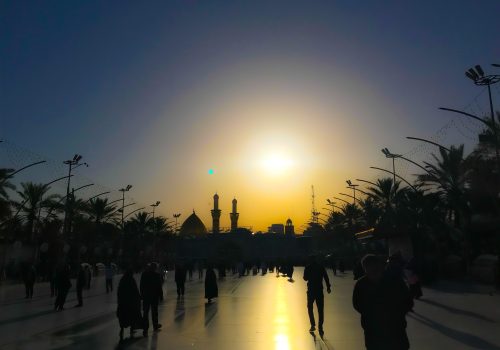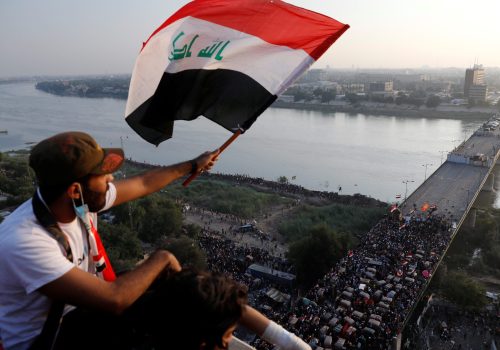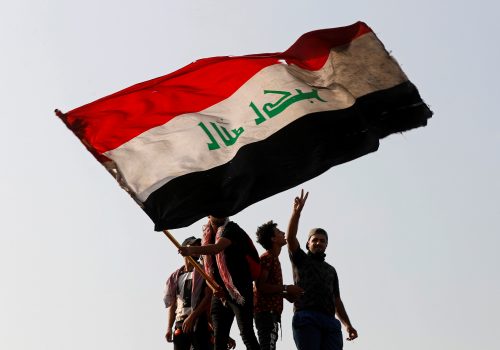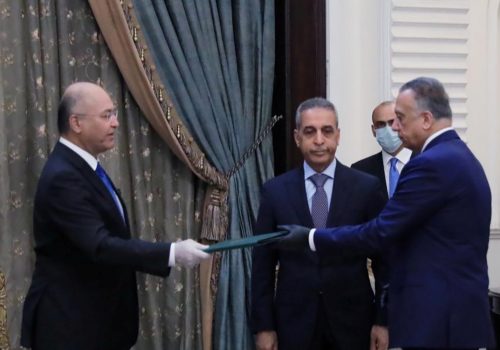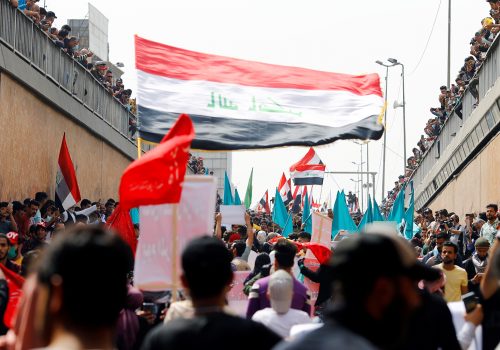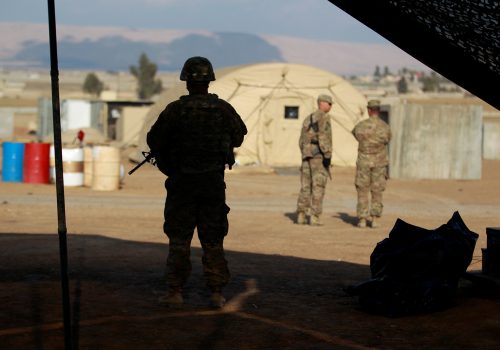Recommended Reading
Events
All Content
Dr. Tony Pfaff is currently a nonresident senior fellow with the Iraq Initiative in the Atlantic Council’s Middle East Programs and the research professor for the Military Profession and Ethic at the Strategic Studies Institute (SSI), US Army War College in Carlisle, PA.
A retired Army colonel and Foreign Area Officer (FAO) for the Middle East and North Africa, Pfaff recently served as director for Iraq on the National Security Council Staff. His last active duty posting was senior Army and Military advisor to the State Department from 2013-2016, where he served on the Policy Planning Staff advising on cyber, regional military affairs, the Arab Gulf Region, Iran, and security sector assistance reform. Prior to taking the State Department position, he served as the defense attaché in Baghdad, the chief of international military affairs for US Army Central Command, and as the defense attaché in Kuwait.
He served twice in Operation IRAQI FREEDOM, once as the deputy J2 for a Joint Special Operations Task Force and as the senior military advisor for the Civilian Police Assistance Training Team. He also served as the senior intelligence officer on the Iraq Intelligence Working Group and as a UN observer along the Iraq-Kuwait border. Prior to becoming a FAO, Pfaff served on the faculty at West Point as an assistant professor of philosophy. As a company grade Army officer, he deployed to Operation DESERT SHIELD and DESERT STORM with 82nd Airborne Division and participated in Operation ABLE SENTRY with the 1st Armored Division.
Pfaff has a bachelor’s degree in philosophy and economics from Washington and Lee University, where he graduated cum laude with honors in philosophy; a master’s degree in philosophy from Stanford University, with a concentration in the history and philosophy of science and where received a graduate fellowship at the Center for Conflict and Negotiation; a master’s in national resource management from the Industrial College of the Armed Forces, where he was a distinguished graduate; and a doctorate in philosophy from Georgetown University.
Pfaff has authored more than twenty articles in professional and scholarly publications including, Proxy War Ethics, in the Journal of National Security Law and Policy; “A Crisis of Norms: Fighting Irregular Wars Well,” in Transformations of Warfare in the Contemporary World (Temple, 2016); “The Ethics of Complex Contingencies,” and “Officership and Character,” in The Future of the Army Profession, 2nd Ed (McGraw Hill, 2005), “Toward an Ethics of Detention and Interrogation: Consent and Limits,” in Philosophy and Public Policy Quarterly (2005); and “Aligning Means and Ends: Towards a New Way of War” (2011) and “Officership: Character, Leadership, and Ethical Decision Making” (2005) in Military Review; and “The Ethics of Espionage,” in the Journal of Military Ethics (2003). He has also published a number of monographs with SSI including “Resolving Ethical Challenges in an Era of Persistent Conflict,” (2011), “Development and Reform of the Iraqi Police Forces” (2008), and “Peacekeeping and the Just War Tradition” (2000).

